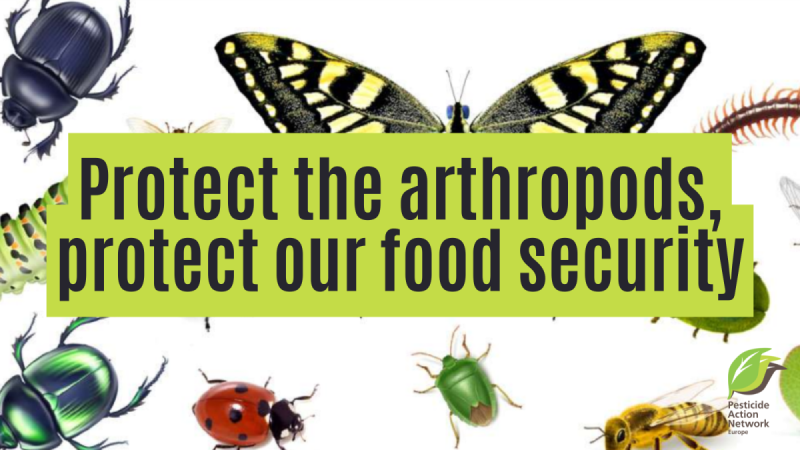With a new campaign, we pay special attention to the major role pesticides play in Europe’s catastrophic collapse of insect populations. The chemicals decimate the broad family of arthropods - including insects, spiders, centipedes and crustaceans. In some regions, insect biomass has declined by an alarming 75% over 25 years. This is not only about nature and biodiversity. We and our food production depend on healthy and biodiverse ecosystems for pollination and fertile soil. While the EU pesticide law says biodiversity should be protected, in practice this is not the case. Our report ‘Licence to Kill’ analysed the causes of the problem. In this campaign, we will interview scientists, review new scientific research and highlight the importance of lesser-known arthropods. Our aim is to stimulate the discussion to achieve the urgent protection of the natural abundance on which our lives depend.
Pesticide products should have no unacceptable effects on the environment and non-target species, according to the EU Pesticide Regulation. This includes their impact on biodiversity and ecosystems. In practice, pesticides that are highly toxic to insects and other life forms have been on the market for many years. This is made possible by an outdated and biased “Guidance Document”, that describes how the impact of pesticides on 'non-target' arthropods should be assessed. Essentially, it allows for the killing of arthropods with almost no limits. Adopted in 2002 and never revised since, it was heavily influenced by industry representatives.
The European Food Safety Agency EFSA is now working on new guidelines. However, the working group tasked with the preparation is unbalanced and biased. Pesticide-friendly approaches favour profit for production over other ecosystem services. Some groups of organisms have even been nominated for ‘ecosystem disservice’. That may sound innocent, but it can have devastating effects on whole ecosystems. You cannot simply take out a factor and expect the ecosystem to survive.
If we would like to protect our food production and preserve nature and biodiversity we will have to protect arthropods. Not doing so will not only lead to a dead zone in agricultural land, with declining soil fertility and reduced production because many crops depend on pollination. But the effect is much broader: pesticides already have a far-reaching negative influence on nature, which is always close to agricultural land. Research shows us that pesticides do not stay in the fields and that 10 of even 50-meter buffer strips are not effective enough to protect biodiversity. Pesticides spread in the air, water, and dust tens of kilometres and harm life tens of kilometres from the fields where they are sprayed.
In the coming months, we will publish interviews, review reports, and highlight important members of the large arthropod family. Stay tuned, follow us on social media or subscribe to our monthly newsletter.
EU: protect the unsung heroes of our ecosystems - arthropods
Read more:
